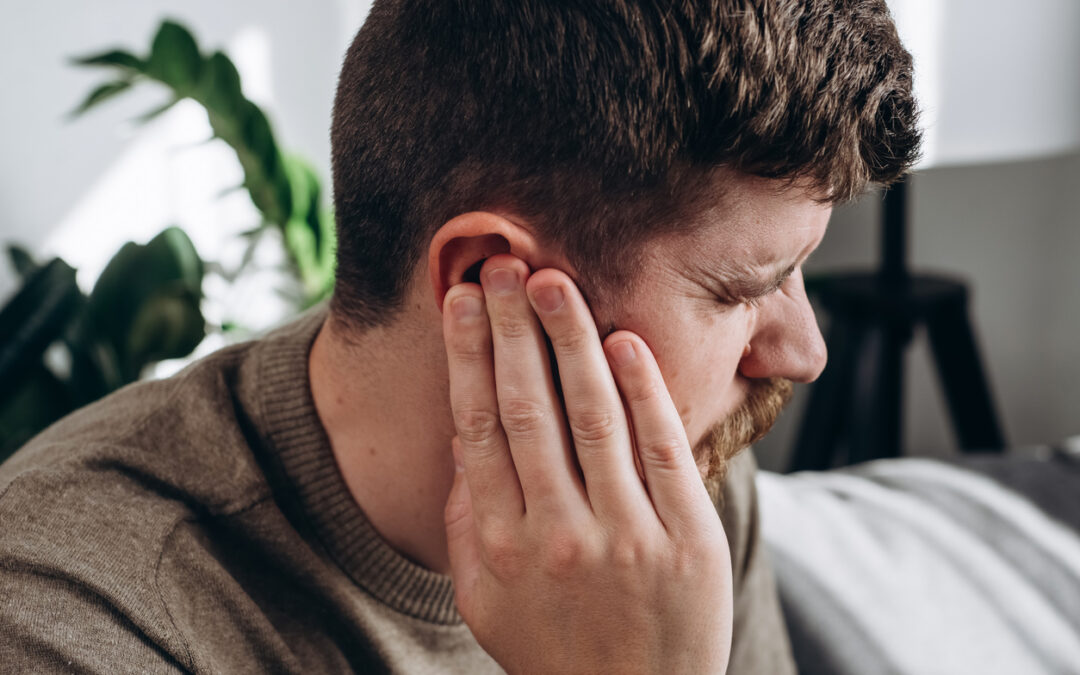When you think of hearing loss, you most likely think of the impairment of both ears, a condition referred to as binaural hearing. Nevertheless, there are instances where infants are born with hearing loss (i.e., unilateral hearing or single-sided deafness) in one ear, while others may develop this type of hearing loss later in life. In this article, we’ll explore the prevalent causes of unilateral hearing loss, its impact, and the potential remedies for hearing restoration.
What is the most common cause of sudden hearing loss?
The predominant cause of sudden hearing loss can vary from various factors. Conditions like ear infections, accumulation of earwax, genetic predisposition, head trauma, and even tumors can contribute to sudden deafness. Let’s delve deeper into each of these potential causes to gain a clearer understanding.
Ear infections
When fluid builds up in the inner ear, the eardrum and tiny bones attached to it are immobilized, impacting the transmission of sounds. Some symptoms of an ear infection include some of the following:
- Pain
- High temperature
- Nausea
- Discharge
- Lack of energy
- Irritation or an itchy sensation in the ear
- Feeling of pressure
If you feel an ear infection coming, don’t delay consulting with your doctor. It’s always best to address any quickly to avoid future complications.
Accumulation of earwax
Cerumen, more commonly known as earwax, is made by cells lining the ear to protect the ear canal, keeping it healthy and clean. The wax is often self-clearing, but any obstruction can lead to a build-up of wax. This build-up is caused by factors such as:
- Hearing aids
- Excessive hair in the ear canal
- Cotton buds or other objects inside the ear
It’s important that you see your doctor about earwax because this can hinder the process of audiology tests and hearing aid fitting.
Genetic predisposition
50% to 60% of hearing loss in babies is due to genetic causes. The cochlea, which transforms sounds in the air into nerve signals for the brain, is a highly intricate and specialized body part. It requires numerous instructions from genes to grow and work properly. If any of these genes change, it can lead to hearing loss.
Other factors that may cause genetic hearing loss includes:
- Maternal infections during pregnancy
- Complications after birth
- Certain medicines
Additionally, 70% of people may not have any other symptoms besides hearing loss, making it non-syndromic.
Head trauma
There are very few studies on the cause of hearing loss from minor head trauma, leading it to go unnoticed. However, this type of injury is quite common and, if evaluated promptly, can return to its pre-injury status. Therefore, if your hearing loss is caused by minor head trauma, you may be able to restore it with time.
Tumors
Even if they aren’t cancerous, tumors in the ear may cause hearing loss. This mass or lump can form in any of the three parts of the ear: inner, middle, or outer. If left untreated, you may increase the chances of hearing loss from an ear tumor. Some symptoms include:
- Dizziness or trouble balancing.
- Ear bleeding or discharge.
- Headaches or ear pain.
- Ringing in the ear (tinnitus).
How does being deaf in one ear affect a person?
Depending on the severity of your hearing loss, being deaf in one ear may affect you in the following ways:
- You may have a harder time identifying from which direction a sound is coming from.
- Hearing other people in crowded and noisy places may become a challenge.
- You may have difficulty detecting how loud something is.
- You might never hear a high-frequency sound because of what’s known as the head shadow effect.
The good news is if your hearing loss is mild to moderate, solving the effects above is simple with a good hearing aid.
Does sudden hearing loss get worse?
Approximately 50% of individuals experiencing one-sided hearing loss can recover within two weeks through prompt treatment. Conversely, around 15% of those with this type of hearing impairment may notice a gradual worsening of their condition over time. Fortunately, the continuous advancements in technology have led to significant improvements in communication for individuals dealing with hearing loss, thanks to the capabilities of modern hearing aids.
What is the best treatment for asymmetrical hearing loss?
The best path to treating asymmetrical hearing loss will likely be hearing aids, bone-anchored hearing devices, or cochlear implants. It’s important to note that if your hearing loss is caused by a disease like Meniere’s, Otosclerosis, or a tumor, it’s best to consult with an ENT who will ensure that there isn’t a more severe cause of your asymmetrical hearing loss.
Take the first step of hearing loss prevention
Understanding how hearing loss in one ear can affect you is the first and most important step in knowing what to do next. Although it may be scary and challenging to deal with, it’s crucial to recognize that seeking help will guide you in the right direction toward healthier or improved hearing.
__
Schedule a free hearing test with Beltone Tristate today if you’re experiencing hearing loss in one ear.

